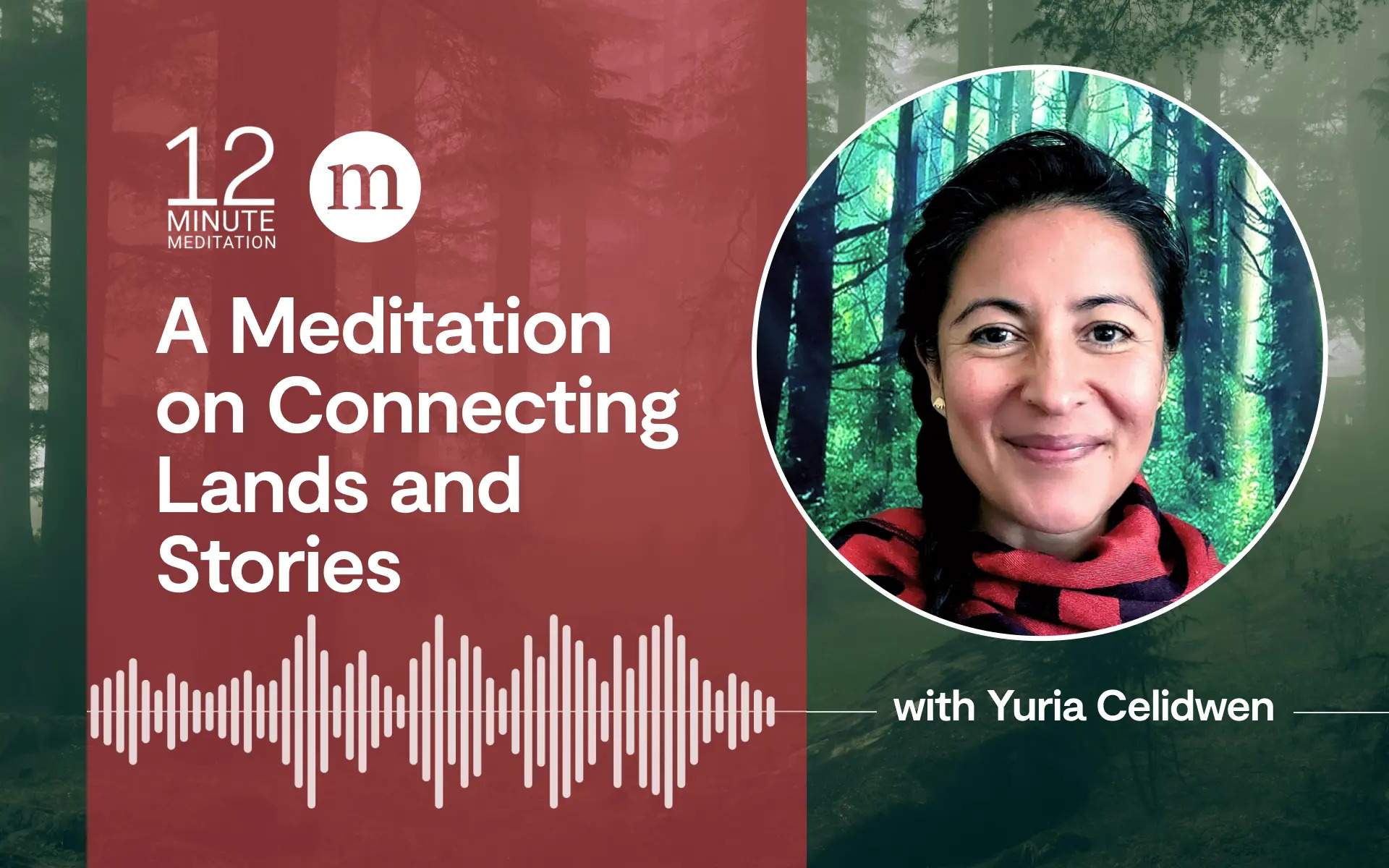Many of us have heard of meditation’s benefits. We may have even tried meditation once or twice. And many of us will have found it hard and concluded that “meditation is not for me.” But wait! Did you know there are many forms of meditation? There are mantra meditations, visualization meditations, open-focus meditations, breath-based meditations, and so many more. You just have to find the shoe that fits. An easy one to start with is one that evokes a very natural state in us: kindness.
What Is Loving-Kindness Meditation?
Loving-kindness meditation focuses on developing feelings of goodwill, kindness and warmth towards others (Salzberg, 1997). As I’ve described in my TEDx talk, compassion, kindness and empathy are very basic emotions to us. Research shows that loving-kindness meditation has a tremendous amount of benefits ranging from benefitting well-being to giving relief from illness and improving emotional intelligence:
Well-being
1. Increases Positive Emotions & Decreases Negative Emotions
In a landmark study, Barbara Frederickson and her colleagues found that practicing seven weeks of loving-kindness meditation increased love, joy, contentment, gratitude, pride, hope, interest, amusement, and awe. These positive emotions then produced increases in a wide range of personal resources (e.g., increased mindfulness, purpose in life, social support, decreased illness symptoms), which, in turn, predicted increased life satisfaction and reduced depressive symptoms.
2. Increases vagal tone, which increases positive emotions & feelings of social connection
A study from 2013 found that individuals in a loving-kindness meditation intervention, compared to a control group, had increases in positive emotions, an effect moderated by baseline vagal tone—a physiological marker of well-being.
Healing
We don’t usually think of meditation as being able to help us with severe physical or mental ailments, but research shows it can help.
3. Decreases migraines
A recent study demonstrated the immediate effects of a brief loving-kindness meditation intervention in reducing migraine pain and alleviating emotional tension associated with chronic migraines.
4. Decreases chronic pain
A pilot study of patients with chronic low back pain randomized to loving-kindness meditation or standard care, loving-kindness meditation was associated with greater decreases in pain, anger, and psychological distress than the control group.
5. Decreases PTSD
A study reports that a 12-week loving-kindness meditation course significantly reduced depression and PTSD symptoms among veterans diagnosed with PTSD.
6. Decreases schizophrenia-spectrum disorders
Also, a pilot study from 2011 examined the effects of loving-kindness meditation with individuals with schizophrenia-spectrum disorders. Findings indicated that loving-kindness meditation was associated with decreased negative symptoms and increased positive emotions and psychological recovery.
Emotional Intelligence in the Brain
We know that the brain is shaped by our activities. Regularly practicing loving-kindness meditation can help activate and strengthen areas of the brain responsible for empathy & emotional intelligence.
7. Activates empathy & emotional processing in the brain
We showed this link in our research (Hutcherson, Seppala & Gross, 2014) and so have our colleagues (Hoffmann, Grossman & Hinton, 2011).
8. Increases gray matter volume
in areas of the brain related to emotion regulation: Leung et al (2013); Lutz et al (2008); Lee et al (2012).
The Stress Response
Loving-kindness meditation also benefits your psychophysiology & makes it more resilient.
9. Increases respiratory Sinus Arrythmia (RSA)
Just 10 minutes of loving-kindness meditation had an immediate relaxing effect as evidenced by increased respiratory sinus arrhythmia (RSA), an index of parasympathetic cardiac control (i.e., your ability to enter a relaxing and restorative state), and slowed (i.e., more relaxed) respiration rate (Law, 2011 reference).
10. Increases telomere length—a biological marker of aging
We know that stress decreases telomere length (telomeres are tiny bits of your genetic materials—chromosomes—that are a biological marker of aging). However, Hoge et al (2013) found that women with experience in loving-kindness meditation had relatively longer telomere length compared to age-matched controls! Throw out the expensive anti-aging creams and get on your meditation cushion!
Social Connection
11. Makes you a more helpful person
Loving-kindness meditation appears to enhance positive interpersonal attitudes as well as emotions. For instance, Leiberg, Klimecki and Singer (2011) conducted a study that examined the effects of loving-kindness meditation on pro-social behavior, and found that compared to a memory control group, the loving-kindness meditation group showed increased helping behavior in a game context.
12. Increases compassion
A recent review of mindfulness-based interventions (MBIs) concludes that loving-kindness meditation may be the most effective practice for increasing compassion (Boellinghaus, Jones & Hutton, 2012)
13. Increases empathy
Similarly, Klimecki, Leiberg, Lamm and Singer (2013) found that loving-kindness meditation training increased participants’ empathic responses to the distress of others, but also increased positive affective experiences, even in response to witnessing others in distress.
14. Decreases your bias towards others
A recent study (Kang, Gray & Dovido, 2014) found that compared to a closely matched active control condition, six weeks of loving-kindness meditation training decreased implicit bias against minorities.
15. Increases social connection
A study by Kok et al (2013) found that those participants in loving-kindness meditation interventions who report experiencing more positive emotions also reported more gains in perception of social connection as well.
Self-love
How many of us are slaves to self-criticism or low self-esteem? How many of us do not take as good care as we should of ourselves?
16. Curbs self-criticism
A study by Shahar et al (2014) found that loving-kindness meditation was effective for self-critical individuals in reducing self-criticism and depressive symptoms, and improving self-compassion and positive emotions. These changes were maintained three months post-intervention.
Immediate and Long-term Impact
The nice thing about loving-kindness meditation is that it has been shown to be effective in both immediate and small doses (i.e. instant gratification) but that it also has long-lasting and enduring effects.
17. Is effective even in small doses
Our study—Hutcherson, Seppala and Gross (2008)—found an effect of a small dose of loving-kindness meditation (practiced in a single short session lasting less than 10 minutes). Compared with a closely matched control task, even just a few minutes of loving-kindness meditation increased feelings of social connection and positivity toward strangers.
18. Has long-term impact.
A study by Cohn et al (2011) found that 35 percent of participants of a loving-kindness meditation intervention who continued to meditate and experience enhanced positive emotions 15 months after the intervention. Positive emotions correlated positively with the number of minutes spent meditating daily.
read more
Loving-Kindness Meditation with Sharon Salzberg
Sharon Salzberg—one of the world’s leading loving-kindness meditation teachers—offers us a profound sense of connection through her teachings, guiding us to live our lives with greater intention and compassion.
Read More
A 12-Minute Meditation to Remind Yourself That You Are Enough
In this guided meditation, Jenée Johnson offers affirmations to help you remember your inherent worth and reconnect with compassion.
Read More








